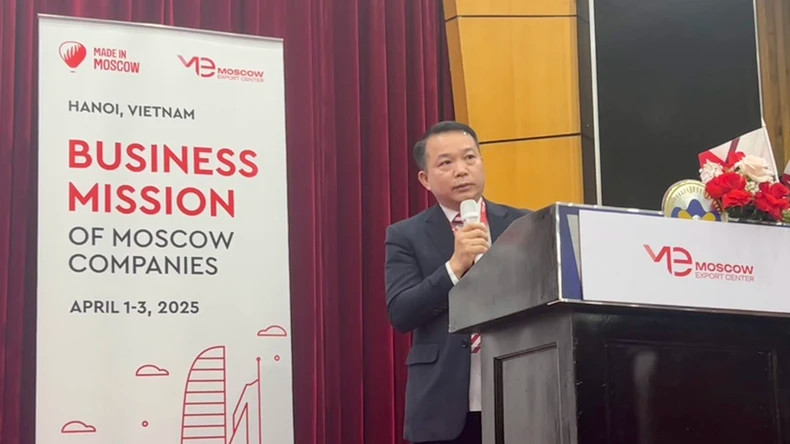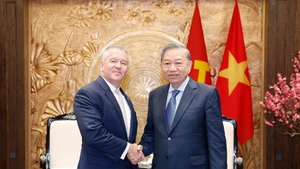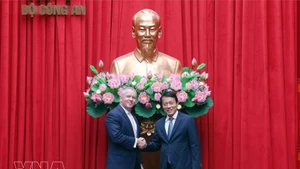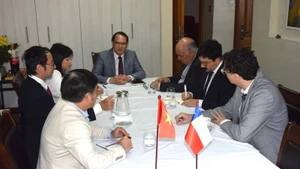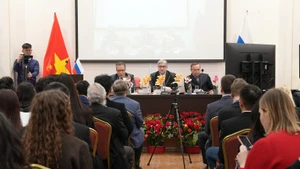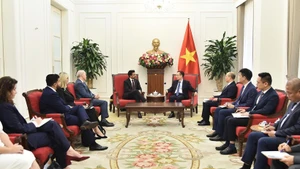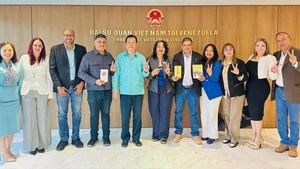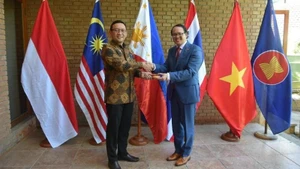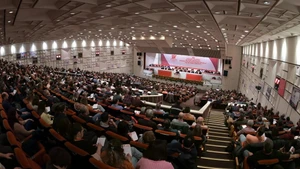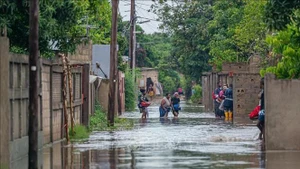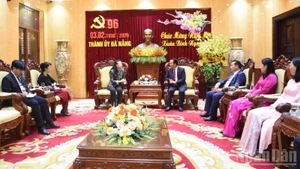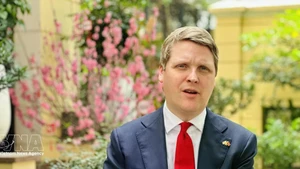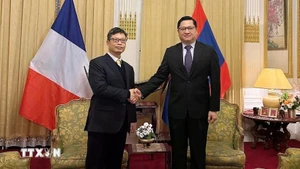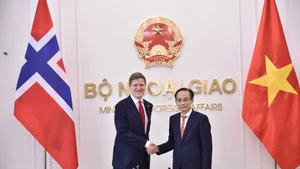This statement was shared by Vyacheslav Kharinov, trade representative of the Russian Federation in Vietnam, during the opening of the Russia-Vietnam Trade Connection Conference held in Hanoi on April 1.
Kharinov noted that trade between Vietnam and Moscow accounted for approximately 40% of the total bilateral trade in 2024. Non-resource and non-energy exports from Moscow to Vietnam have grown by an average of 50% compared to the previous year. He believes this business delegation will play a crucial role in boosting bilateral trade and solidifying the presence of Moscow’s products in the Vietnamese market and Southeast Asia.
Ivan Nesterov, Counsellor at the Russian Embassy in Vietnam, welcomed the participation of businesses from both nations, expressing confidence in the valuable opportunities the event provides for establishing direct relationships and practical cooperation agreements. He emphasised that the leaders of both countries continue to focus on fostering economic and trade collaboration.
According to Russian statistics, bilateral trade grew by 20% in 2024, reaching 6 billion USD. Notably, Moscow-made products currently make up a significant portion of Russia’s exports to Vietnam.
Ekaterina Zheleznyakova, Head of International Partnerships at Moscow Export Centre, confirmed that the centre will continue supporting Moscow businesses in expanding into international markets, including Vietnam, which is seen as a key strategic market for Russian companies.
Tran Van Tam, Vice Secretary General of the Vietnam-Russia Friendship Association, introduced the Vietnam-Russia Cooperation Centre, which is under the Vietnam-Russia Friendship Association. The centre’s important mission is to connect and organise activities that promote friendship and cooperation between the two countries in the fields of economics, trade, science and technology, education, healthcare, culture, and tourism.
Tan shared that current bilateral trade cooperation does not yet reflect the full potential of the two countries’ relationship. He hopes that the centre will assist organisations and businesses in exporting and importing goods into the markets of Vietnam, with its 100 million people, and Russia, with its 145 million people.
